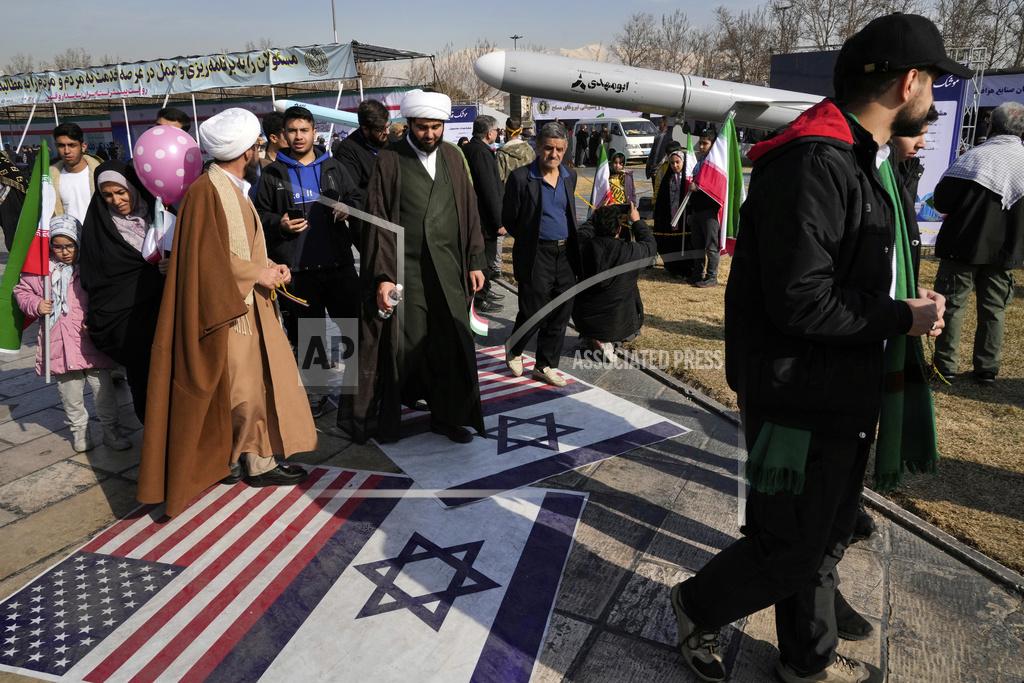President Trump’s recent military action in Iran raises questions about nuclear threats, U.S. foreign policy, and the historical roots of instability in the Middle East. University of North Florida experts say the U.S. response reflects long-standing geopolitical alliances and evolving interpretations of presidential war powers.
UNF professors Seema Shekhawat, Sean Freeder and Richard Tryon gave their insight on the implications and underlying forces driving recent developments. With focus on the June 21 U.S. airstrikes on Iranian nuclear facilities, the three experts explained what these actions could mean for students, from rising costs and political polarization to broader questions about war and leadership.
After a week of speculation on whether or not Iran’s key nuclear sites were “completely and totally obliterated” by the U.S. airstrikes, AP News reported that Iran’s nuclear program may have only been set back a few months. On Wednesday, Iran’s president suspended cooperation with the UN’s nuclear watchdog after U.S. and Israeli airstrikes hit key nuclear sites, likely restricting inspectors’ access to Tehran’s uranium program, according to the AP.
Mia Wilson, a junior at UNF, said she is concerned about how the current administration is handling the conflict.
“Personally, I’m extremely worried and disappointed about how our country is handling this,” said Wilson. “It’s frightening seeing threats and posts about the possibility of a war.”
“I encourage students to understand history and get at the facts, as they pursue any wicked problems that they are facing as young Americans,” said Tryon.
Implications for Students and Young Americans
Freeder, a political science professor at UNF, said that in the event there’s no escalation, there will most likely be no direct impacts on U.S. citizens. However, in the event that there is an escalation, it could mean higher taxes, higher prices, and higher national debt.
Shekhawat, a political science professor who specializes in international relations, said the conflict could escalate U.S. military involvement and contribute to economic hardship. Researchers have found a direct association between conflicts and inflation rates, with a country’s direct involvement in a conflict being associated with an approximately 51% higher inflation rate on average, compared to periods without conflict.
“The main impact on students is the same as the main impact on most Americans. It would be higher prices on everything, as well as all the other things that come along with war—like potentially higher taxes to justify it, or if not, higher national debt we would incur because wars are expensive,” said Freeder.
Tryon, the senior fellow for leadership at UNF and U.S. Marines and Navy veteran, said one of the biggest challenges the country faces in foreign policy is its frequent change in leadership. With presidents changing every four to eight years, foreign policy priorities often shift with each administration.
“Understanding the why and where of U.S. foreign policy is essential,” said Tryon.
For students, Tryon said going beyond emotional reactions and focusing on facts is crucial for understanding what’s going on.
Shekhawat said U.S. involvement could lead to heightened political polarization on college campuses. She said this in turn could create challenges for university administration to balance free speech and safety.
“The Israel-Iran conflict and the U.S. involvement could lead to political division, activism, and polarization,” said Shekhawat.
How likely is escalation?
With the current ceasefire in place, the immediate risk of further escalation has been mitigated, according to Shekhawat. However, she said in the event of an escalation, the potential disruption of global oil supplies, and loss of human lives pose serious threats to global, economic, and human security.
“The escalation of Israel-Iran conflict would not only destabilize the Middle Eastern region, but its spillover impact will be felt outside the region,” said Shekhawat.
In response to the recent conflict, the Iranian parliament announced intentions to close the Strait of Hormuz—which Tryon mentioned is a critical chokepoint where a fifth of the world’s oil supply flows. However, Tryon said such a move would be economically self-destructive for Iran, as it also relies on the strait to export its own oil, and is a major source of revenue.
Iran’s economy has been severely weakened by international sanctions, and much of its limited funding goes to the military and proxy groups rather than its population, making oil exports even more vital, according to Tryon. So although Iran often uses strong rhetoric, closing the strait would provoke international backlash and serve no one’s interest—including Iran’s—according to Tryon.
US involvement and policy
Following the Iranian Revolution, U.S.-Iran relations dipped, while the U.S. and Israel relations strengthened. Since then, the U.S. and Israel have collaborated to check Iran’s support for terrorism and thwart its nuclear program.
Shekhawat explained that the U.S. support for Israel furthers the country’s involvement in Middle Eastern conflicts.
“The unwavering support of the U.S. for Israel, among others, furthers U.S. involvement in the conflict-ridden Middle East while also at times straining relations with some of our allies,” said Shekhawat.
In previous administrations, the United States’ strategy to prevent Iran from developing nuclear weapons focused on careful diplomacy and negotiation, according to Freeder. This approach led to the Obama administration’s Iran nuclear deal, which placed limits on Iran’s nuclear program and international oversight to ensure it wouldn’t become weapons-capable within the next decade.
However, a major turning point came during President Trump’s first term, when he unilaterally withdrew the U.S. from the deal. Without the agreement in place, Iran no longer had incentive to limit its program, and many believe it has since resumed expanding its nuclear capabilities, according to Freeder.
On June 21, the United States inserted itself in the latest Iran-Israel conflict by launching strikes on three Iranian nuclear facilities, aiming to disrupt Iran’s nuclear capabilities.
“The first major question is whether the president had the authority to act unilaterally when bombing Iran’s nuclear sights—and that, in itself, is a massive legal and constitutional issue,” Freeder said.
“If you were to bring the Founding Fathers into 2025 and show them what just happened, their response would be unambiguous: the president cannot take what they would view as a clear act of war without congressional approval,” Freeder said. “From their perspective, this would be flat-out illegal.”
However, Freeder also said the reality is far more complex. Over the past two centuries, interpretations of presidential war powers have evolved significantly.
While the “Founders would be shocked,” Trump’s actions aren’t necessarily out of step with what modern presidents, both Democrat and Republican, have done for the past 80 years. In today’s political landscape, it’s become relatively standard for presidents to act first and for Congress to react after the fact, according to Freeder.
Tryon agreed with Freeder, and brought up Article II of the U.S. Constitution. Article II grants the president, as commander-in-chief, powers to authorize military action without prior congressional approval.
According to Cornell Law School, the President can deploy troops without congressional approval under the Commander in Chief Clause. Although the War Powers Resolution requires notification within 48 hours and limits deployments to 60 days without approval, Presidents often bypass it, citing constitutional authority. Post-9/11, the AUMF further expanded this power by authorizing broad military action against terrorism.
“While the use of Article II powers is often controversial and highly politicized, the current criticism of President Trump’s actions is not fundamentally different from what past presidents have done,” said Tryon.
Background & Context
When it comes to the Middle East, it’s crucial to understand that current events are often shaped by over a century of complex history, said Freeder.
The roots of the Israel-Iran conflict trace back to the Iranian Revolution of the late 1970s. After the revolution, Iran’s new Islamic leadership adopted a hostile stance toward Israel and refused to recognize it as a legitimate state. Over the decades, Iran’s support for militant groups like Hezbollah and Hamas has further fueled tensions, posing a potential threat to Israel’s security. While past confrontations were often indirect and limited in scope, the current conflict has become far more direct and destructive, Shekhawat explained.
From Israel’s perspective, Iran is a primary sponsor of Hamas and, historically, groups like Hezbollah, organizations that have consistently posed threats to Israeli security, Freeder explained.
For decades, Iran’s support for these groups has fueled ongoing conflict, but the recent surge in tension centers around a more alarming concern: the prospect of Iran acquiring nuclear weapons. This threat drives Israel’s determination to prevent Iran from becoming nuclear-capable.
For years, the United States has shared this goal, working to limit Iran’s nuclear development, said Freeder. The heightened tensions of recent weeks suggest that both Israel and the United States may believe Iran is closer than ever to achieving nuclear capability, according to Freeder.
Iran has been able to enrich uranium to 60%, which has been a large cause for concern because only 3–5% enrichment is needed for a civil nuclear energy program. From the perspective of many experts and governments, enriching to 60% suggests an intent to eventually reach 90%—the level required to produce nuclear weapons.
While achieving 60% enrichment is difficult, the jump from 60% to 90% is much easier by comparison. This development has significantly heightened tensions with Israel, which sees it as a major step toward potential weaponization, according to Tryon.
___
For more information or news tips, or if you see an error in this story or have any compliments or concerns, contact editor@unfspinnaker.com.













